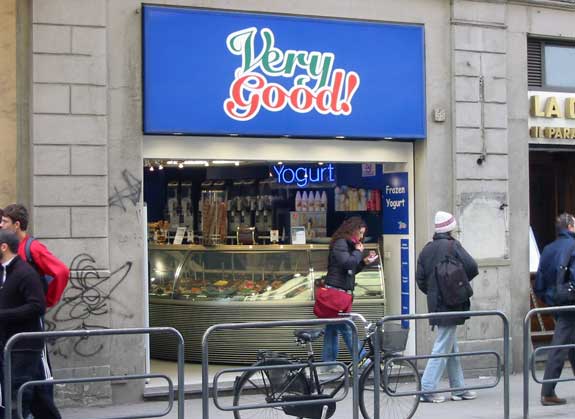Breaking out of the English-language expat bubble

It seems possible to get by nearly anywhere in the world knowing no other language than English. This situation has opened up the globe to those of us fluent in English and it’s made us native-English speakers even more welcome in some unusual ways. But for the expat, it seems the temptation to just stick with English puts us at a major disadvantage.
Notice in the first sentence I used the phrase “get by” nearly anywhere rather than “thrive” nearly anywhere. This is the major difference, which was brought to my attention again recently after reading the last two paragraphs of a post written by an expat friend here in Turkey. He admits that in spite of his best intentions, four years after moving to Turkey his conversations with non-English speakers are “both extremely limited and childlike.”
On my travels I’ve met many, many expats who intend to stay in an adopted country for years to come, yet a large group of them never get past the most basic stage in learning the local language. My own excuse, that I am not intending to stay anywhere for very long, is similarly just an excuse, so I’m just as guilty. I can see that even learning a hundred or two hundred basic words would dramatically improve my experience here, yet it’s just so easy not to that I haven’t.
Expanding your world
A number of things have helped remind me lately that the expression “English-language bubble” is pretty accurate. For the past 7 months I’ve been living in a town of 7,000 permanent residents, but for me the town has perhaps 200 or 300 (including only those fluent in English). I can’t communicate past “how much is this?” “5 lira.” with the huge majority of locals. English is surprisingly uncommon in Turkey, which makes it all the more helpful to learn Turkish, but that also makes the expat bubble more comfortable and harder to break out of.
A couple weeks ago I bought a pair of athletic socks at a small shop and I was charged 3 lira (about US$1.30) for them. A few days ago I went back to buy 2 more pair, and a different clerk told me they cost 5 lira each, in her very limited English. I mentioned I’d only paid 3 lira there recently, and another clerk immediately told me I could have both pair for 5 lira. I definitely look and speak like a tourist here, so this was a perfect example of how I’m more or less living in a parallel city offering only a superficial experience.
An example of someone who’s done it right
One friend and central figure in the (mostly British) English-speaking expat community here is a co-owner of an adventure travel company. He arrived here 18 years ago, and in spite of the fact that he assumed he’d be moving to Spain in the coming years, he forced himself to learn Turkish. He speaks to all of his local employees in the local tongue even though most of them speak English well and might even benefit from the practice themselves.
Courageously, he allowed himself to be the one bumbling the local language as he learned, which I think is the toughest part of most of us. We might think of ourselves as highly educated so to be laughed at by a goat herder as we blunder his native tongue is humiliating, and necessary.
To him this town of 7,000 has 7,000 residents because he can fluently speak to all of them. He can also get favors done by locals for things I’d never even consider asking for, and I’m sure he pays the local price for socks if that’s his goal.
Overcoming the English-practice problem
While I’ll likely never get far with Turkish, it is shameful for me that I don’t speak fluent German, but this itself presents a different challenge. I took 4 years of German in high school and my mother was born in Germany and my brother has lived there for 15 years now so I have plenty of ways to practice if I really want.
I’ve also visited Germany on quite a few occasions and I’ve had a language problem that is common when visiting much of Europe and even many parts of Asia. Many locals are desperate (usually with a financial motivation) to learn fluent English and they take every chance to practice that they can get, with seemingly no fear of looking foolish.
I do speak a fair amount of German, but whenever I start a conversation there in that language my accent is immediately detected and the conversation shifts to English. It’s always obvious to both parties that their English is better than my German, so for me to insist on practicing myself I’d be wasting at least a bit of their time in the process. This is a tough thing to get past.
It’s likely that I’ll be moving to Berlin sometime in 2012 and based on previous trips there I know that locals love to speak English to visitors like me. It’s a good feeling to know that I’m helping them practice and gain confidence in the language most important to the world, by far, but that also makes learning German almost impossible. I’m pledging to try harder this time and we’ll see how it goes.

Great advice, Tom. I wish you all the very best with your 2012 language goals for Germany! Andrea